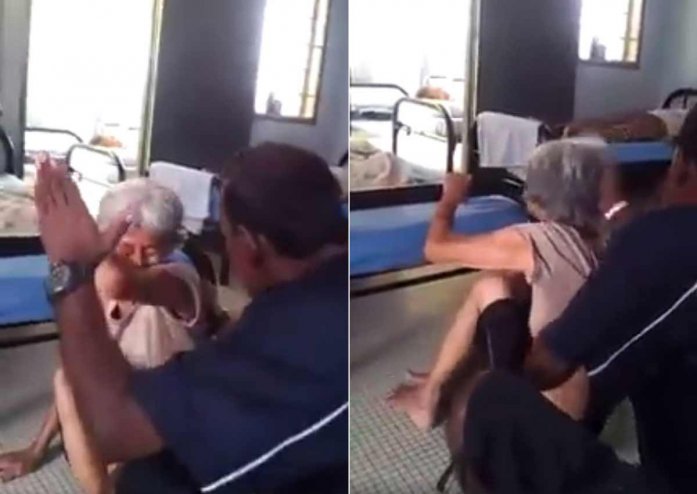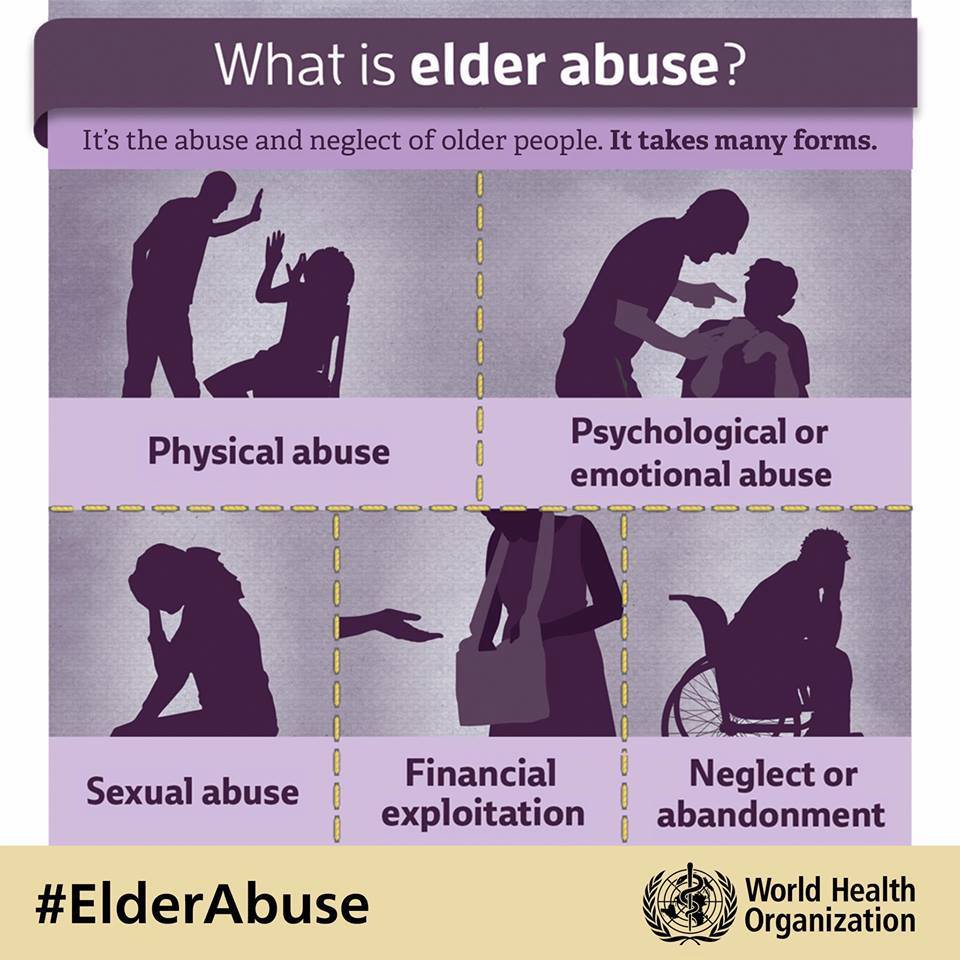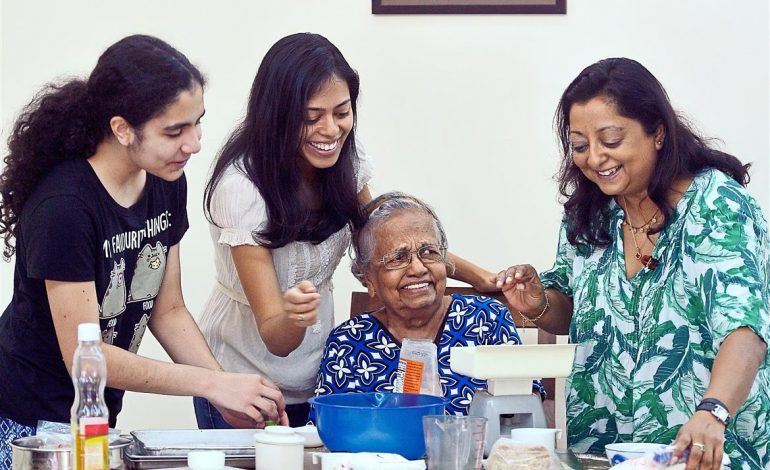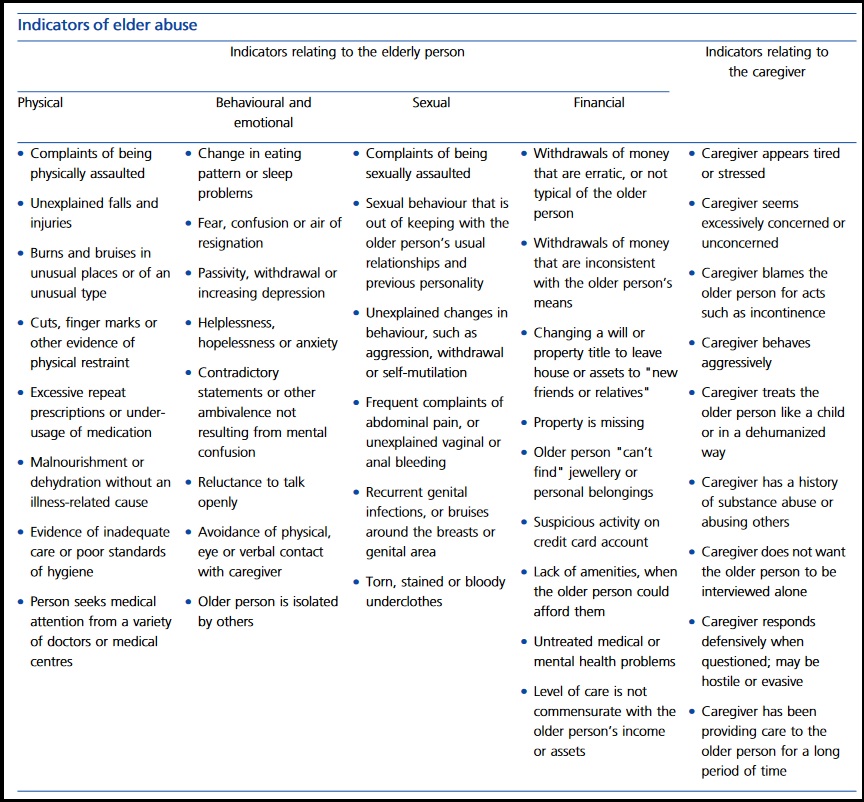1 out of 10 elderly people in Malaysia may be victims of abuse. What can we do about it?

- 564Shares
- Facebook512
- Twitter4
- LinkedIn9
- Email4
- WhatsApp31
Let’s start off with a question: when was the last time you talked to your parents?
If you do so fairly frequently, then good for you. If you don’t… well, you might want to read on because today’s topic has to do with the way we treat old people here in Malaysia.

We’d like to think that most of our elderly are treated well, but we hear such disconcerting stories in the news. Earlier this year, a 79 year-old sight-impaired woman was rescued from being consistently starved and beaten, and locked outside her caretakers’ home when they were away at work. Many were cheated out of their money by either scammers or their own relatives looking for easy prey. Others were abandoned at bus stations or hospitals by their own children, who refuse to continue caring for them or even visit.
We could go on with the examples, but honestly they’re pretty hard to find. Which is good, right? Well, not really. If anything, lack of news reports about it is quite ominous, considering that…
At least 1 in 20 of our old people are being abused

“1 in 20” is just to get you to read on, but the number may be much higher depending on where you look. If you look at the problem globally (yes, it happens all over the world), the World Health Organization (WHO) puts the number of elderly persons being abused at 15.7%, or roughly 1 in 7. Closer to home, according to studies done by Universiti Malaya researchers last year, 4.5% of elderly persons in rural areas have experienced some form of abuse (roughly 1 in 20) within the past year, while in urban areas, the number shot up to 9.6%, or roughly 1 in 10.
To be clear, when we say ‘elderly’ we mean 60 years and above, and since it’s so awkward to type, with all due respect we may refer to them as ‘oldies‘ from now on. Getting back to our news, while our rates of oldie abuse seem to be lower than the global average, it’s still disturbing to think that if you see ten old people in KL, at least one of them may be an abuse victim. How come so many?

Perhaps it’s because elder abuse isn’t just limited to beating and starving oldies. The formal term for this phenomenon is Elder Abuse and Neglect (EAN), and it often comes in five terrible flavors:
- Physical abuse, where you piap the old person physically, or not let them eat, drink or take their meds.
- Psychological abuse, where you threaten them, shame them, call them names, or prevent them from seeing other people.
- Financial abuse, where you either swindle their money or guilt them into transferring your assets under your name, among other things.
- Sexual abuse, which is exactly what you think it is, and
- Neglect, which can simply mean not caring for them as well as you should, or
not calling them enoughabandoning them.

Worldwide, the most often type of abuse is psychological, but in Malaysia financial abuse seems to be the most common. But if you think that financial abuse is less serious, think again. When an old person gets cheated, especially by someone they trust, the emotional and psychological trauma can make them die faster, even if they have healthy bodies.
“It’s about more than losing their money. Being cheated by someone they trust affects the elderly psychologically, and this affects their mortality. Financial abuse also limits their access to healthcare. When you don’t have money, how are you going to go to the hospital or buy medicine?’’ – Dr Raudah Yunus, one of them UM researchers, as reported by the Star.
Financial abuse is mostly committed by people related to the victim, either by blood, marriage, or a special relationship like a trustee or attorney. Which can make you wonder… if it’s so prevalent, how come we’re letting this kinds of thing happen? Where is the justice? Where is the law? Well…
The law protects the elderly to a certain degree, but it’s not enough
In Malaysia, one of the reasons often quoted for the rampant abuse is the laws and guidelines regarding the treatment of oldies being as airtight as a tea strainer. There are plenty of rules that apply to them, like for example the Penal Code to address the cheatings and beatings, the Employment Act and the Minimum Retirement Age Act to allow them to work, and the Domestic Violence Act for the violence, to name a few.

However, according to UM’s Assoc Prof Dr Siti Zaharah, these statutes are too general and fail to recognize the special needs and challenges faced by oldies.
“Take the Employment Act for example. There is nothing in there that prohibits discrimination towards the elderly in employment. At the moment, it is up the to fairness and willingness of employers but many shun from employing senior citizens because they worry about their health issues and so on.” – Dr Siti Zaharah, as reported by Star2.
Besides a lack of specific laws to protect oldies and their rights, there is also a lack of guidelines regarding elder abuse for people who handle such cases. Social workers may notice that an old person is being abused by his family, but what they should do about it is hazy as the protocols regarding that is not as clear as those found in the Child Act. At best, they can only talk to the oldie’s family members and discuss a solution.

Another problem is how people see the issue. In the three years leading up to 2016, only 23 cases of elder abuse were reported in Malaysia, which is painfully little compared to how common it is. A reason for this is because like domestic violence, a lot of people see elder abuse as a family matter that doesn’t require intervention from outsiders like the police. There is currently no mandatory reporting for elder abuse cases, which is needed as the victims may be reluctant to report abuse if it comes from a child or a spouse. So no report, no action.
“Without a police report, the law will infer that he or she consented to what was done or has accepted and condoned the action,” – Dr Siti Zaharah, to the Star.
Sure, our laws and guidelines when it comes to elder abuse can be a bit woolly, but…
Why are we abusing our moms and dads and grandparents to begin with?

Back in 2011, a report surfaced that revealed about 1 in 3 senior citizens in Malaysia have been abandoned and receive no financial support from their children. The late Karpal Singh had then called for the government to make children abandoning their elderly parents a crime, asking us to follow Singapore’s Maintenance Act that allows parents to sue their children for not taking care of them.
Based on the absence of said act today, we guess the response to that had been lukewarm, with Datuk Seri Shahrizat (then Women, Family and Community Development Minister) saying that we only need to encourage the filial piety (devotion to one’s parents) that’s already inherent in our culture, and women’s rights group Sisters in Islam saying that it won’t prevent children from dumping their parents in homes.
However, in today’s demanding world, filial piety can only go so far. Family values today are not the same as they were before, with children migrating to cities and leaving their parents at home, urbanization, and families growing smaller. Today, about 9% of our population is made up of oldies, and of that 30% live alone or with a spouse. The rest are either living with their children or are put in retirement homes.

Caring for an elder person can be very demanding in many ways, and according to Dr Rajbans Singh, a consultant geriatric, due to a lack of knowledge on elderly care, caretakers often abuse the oldies without realizing it.
“It’s different with children, where you are in charge and you can set the rules. With the elderly, they can make up their own minds. We have to remember that these older people were once ‘somebodies’ – they were the head of households, they were professionals or had jobs and were depended on for many things. But, the roles have now changed and that’s not an easy thing to deal with,” – Dr Rajbans Singh, to Star2.
While caring for them like one would a child and overprotecting them may seem affectionate, this can cause the older person to feel isolated, depressed and demoralized, and can be considered a form of abuse. It’s a hard line to toe, even more so when the oldie is not healthy. So you can imagine how some children, with their own children to raise and a career to maintain, can find caring for their parents to be too much. The stress can lead to abuse, and in extreme cases, abandonment.
“It’s not that people don’t want to care for their aged parents, but it’s hard and they need help whether in the form of tax deductions, discounts for services, leave for taking the elderly to the hospital and so on. That’s the reality now and we need to address it,” – Dr Siti Zaharah, to Star2.
Laws that penalize children who break from the stress may turn sour, so…
How do we fix this problem?

We are facing a situation in Malaysia where more and more people are growing older and less babies are being born, making our elderly population one of the fastest growing in the world. By 2030, it is expected that at least 15% of Malaysians will be 65 years old or older. With that in mind, we need to start getting serious with our efforts in tackling elder abuse.
Malaysia had tried to include the elderly more through National Policies for older persons since 1995, and most recently they have announced plans to legislate a new act that protects the rights and welfare of the elderly, as well as several other ideas, like reducing mandatory EPF contribution for employers who hire old people, giving them tax incentives, and allocating a whole bunch of money for programs and infrastructure related to the elderly. It’s still a work in progress, but it’s a start.
As for our side, we can be more understanding of the challenges faced by old people. UiTM’s Dr Jaspal Kaur had observed that many age-related discriminatory practices and policies in the country exist because of our negative view of older people, seeing them as “mentally and physically weak, stubborn, out-of-date, unable to learn, seriously unhealthy and all in all a burden to society”. Due to these perceptions, getting jobs and services is hard for them, and their views are not respected.
This may lead to oldies not complaining or reporting the discrimination and abuse they receive, due to a lack of confidence or not knowing how or where to complain. Besides changing our perception towards them, we can also look out for signs of abuse by referring to this chart:

If you do encounter elder abuse cases, do forward it to the Welfare Department or call the Kasih Helpline at 15999. With the heads of our government being elderly themselves, we can only hope that they will continue improving how the elderly are treated in Malaysia. If they don’t… better start lobbying, because our own rights and welfare in a few decades are at stake here.
- 564Shares
- Facebook512
- Twitter4
- LinkedIn9
- Email4
- WhatsApp31



